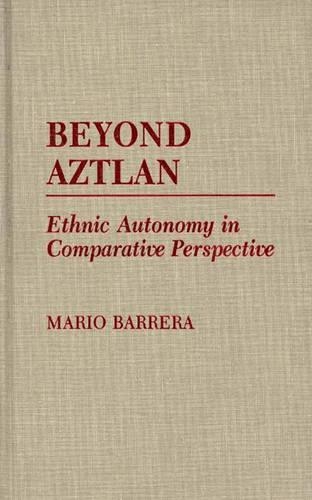
Beyond Aztlan: Ethnic Autonomy in Comparative Perspective
(Hardback)
Publishing Details
Beyond Aztlan: Ethnic Autonomy in Comparative Perspective
By (Author) Mario Barrera
Bloomsbury Publishing PLC
Praeger Publishers Inc
14th November 1988
United States
Classifications
Tertiary Education
Non Fiction
Social and ethical issues
305.86872073
Physical Properties
Hardback
221
Description
Does the achievement of economic equality in a multiethnic society require the complete loss of a minority's cultural identity Beyond Aztlan argues that American society has historically viewed a distinctive cultural identity as something that an ethnic group gives up in order to achieve economic and political parity. Mexican Americans, who have scored limited gains in their struggle for equality since the 1940s, are proving to be no exception to the rule. However, Barrera compares the situation of Mexican Americans to that of minority groups in four other countries and concludes that equality does not necessarily require assimilation.
Reviews
[B]arrera addresses many issues, questions many of the answers given by Chicano organizations and movements in their quest for Aztlan, and provides much food for thought. Anyone interested in the issues of ethnic equality with cultural maintenance or regional autonomy would do well to read this book, if not for its answers, then perhaps for its questions. * American Journal of Sociology *
A most innovative comparative analysis and assessment of regional autonomy and pluralistic accommodation of various ethnic groups in four countries with ethnic diversities (Canada [Quebec], China, Switzerland, and Nicaragua) as they apply to Chicanos and Aztlan. This is an important preliminary analysis of comparative Chicano political thought. This is a most highly recommended. * LA RED/THE NET *
Anyone interested in the issues of ethnic equality with cultural maintenance or regional autonomy would do well to read this book. * American Journal of Sociology *
Author Bio
Mario Barrera is professor of ethnic studies at the University of California, Berkeley, and the author of Race and Class in the Southwest (1979). He received his PhD in political science from Berkeley in 1970, and was one of the founders of the National Association for Chicano Studies in 1973.
